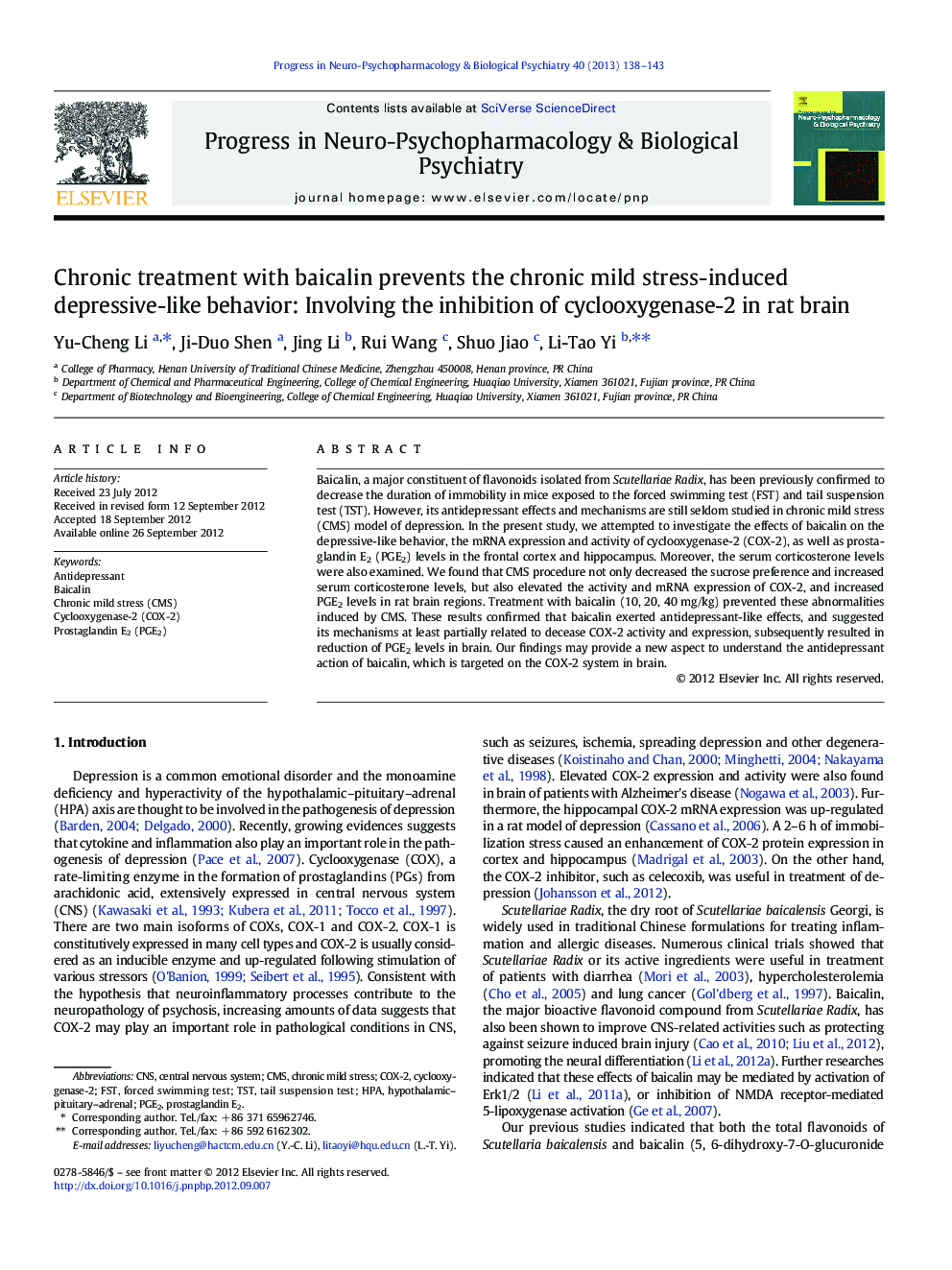| Article ID | Journal | Published Year | Pages | File Type |
|---|---|---|---|---|
| 2564957 | Progress in Neuro-Psychopharmacology and Biological Psychiatry | 2013 | 6 Pages |
Baicalin, a major constituent of flavonoids isolated from Scutellariae Radix, has been previously confirmed to decrease the duration of immobility in mice exposed to the forced swimming test (FST) and tail suspension test (TST). However, its antidepressant effects and mechanisms are still seldom studied in chronic mild stress (CMS) model of depression. In the present study, we attempted to investigate the effects of baicalin on the depressive-like behavior, the mRNA expression and activity of cyclooxygenase-2 (COX-2), as well as prostaglandin E2 (PGE2) levels in the frontal cortex and hippocampus. Moreover, the serum corticosterone levels were also examined. We found that CMS procedure not only decreased the sucrose preference and increased serum corticosterone levels, but also elevated the activity and mRNA expression of COX-2, and increased PGE2 levels in rat brain regions. Treatment with baicalin (10, 20, 40 mg/kg) prevented these abnormalities induced by CMS. These results confirmed that baicalin exerted antidepressant-like effects, and suggested its mechanisms at least partially related to decease COX-2 activity and expression, subsequently resulted in reduction of PGE2 levels in brain. Our findings may provide a new aspect to understand the antidepressant action of baicalin, which is targeted on the COX-2 system in brain.
► Chronic baicalin treatment attenuated the reduction of sucrose preference in the CMS. ► Baicalin reduced serum corticosterone levels in CMS rats. ► Baicalin inhibited the COX-2 activity and expression and PGE2 levels in the frontal cortex and hippocampus in CMS rats.
